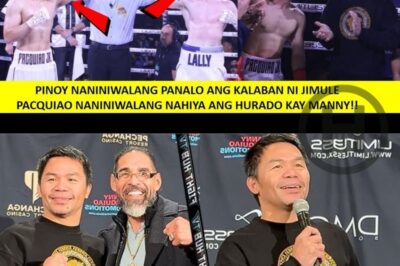A Calm Rebuttal in the Midst of Noise: Paolo Contis Responds to Accusations of Manipulation and Betrayal With Quiet Strength
In an industry where silence can be misinterpreted as guilt and every word uttered becomes a headline, actor Paolo Contis has taken a measured and dignified approach in responding to what has been described by many as a veiled accusation. The buzz began when actress Yen Santos released a deeply personal statement about a past relationship that left her feeling manipulated and emotionally drained.
Though Yen never mentioned names, the public quickly connected her words to her former relationship with Paolo Contis, based on timing, social media behavior, and past media reports. In response, Paolo offered what many perceived as an unexpected answer: no aggressive denial, no counteraccusations—just a firm and deliberate “no comment.”
In this article, we examine the roots of this situation, public and media reactions, and what it tells us about privacy, responsibility, and emotional truth in the lives of public figures.
I. The Trigger: A Personal Testimony Without Names
In mid-2025, Yen Santos took to social media and video platforms to reflect on a previous relationship. Her words painted a picture of an emotionally toxic dynamic—characterized by control, manipulation, and betrayal. She described how the relationship made her feel like she was “slowly losing herself.”
She never named the individual involved, but fans and commentators quickly began speculating. Given the high-profile nature of her past relationship with Paolo Contis—confirmed in 2023 and publicized intermittently since—it didn’t take long before fingers were pointed in his direction.
What made Yen’s message so powerful wasn’t just what she said, but how she said it: with quiet vulnerability, rather than sensational anger. This fueled a widespread debate about emotional abuse, red flags in relationships, and how much responsibility celebrities owe to the public when their personal lives become public discourse.
II. Paolo’s Response: When Silence Speaks
Appearing at the premiere of his new film Fuchsia Libre, Paolo was asked about the swirling accusations. He responded briefly: “One fine ‘No comment.’”
He later elaborated that the public often assumes celebrities owe them every detail of their lives, and that staying silent is not an admission of guilt, but a conscious decision to preserve dignity and avoid further escalation.
What Paolo didn’t say was perhaps as powerful as what he did. He didn’t deny the relationship. He didn’t dismiss Yen’s experience. He didn’t try to control the narrative. Instead, he chose a path few celebrities take: respectful disengagement.
III. A Pattern of Privacy
Paolo Contis has been in the public eye for decades, transitioning from a child actor to a mature performer known for both comedy and serious drama. His romantic life, however, has often been the subject of headlines—especially in recent years. From his previous breakup with long-time partner LJ Reyes to his then-confirmed relationship with Yen Santos, he’s experienced both praise and backlash.
What seems to define his approach in 2025 is a determination to protect what remains private. In interviews, he has emphasized the importance of drawing boundaries between his personal and professional lives. He’s admitted to past mistakes but insists that healing and accountability happen best off-camera.
This choice isn’t always well-received by fans and followers who demand transparency—but it is increasingly seen as a valid form of self-care in a hyperconnected world.
IV. Reading Between the Lines: Is Silence Accountability?
Many public figures respond to accusations with immediate rebuttals, legal threats, or emotional explanations. Paolo Contis, however, has chosen a third option: silence. But is that silence avoidance, or is it accountability on his own terms?
Observers are split. Some believe his refusal to comment is a sign of guilt, while others believe it’s an act of maturity.
In a 2024 interview, long before this current situation, Paolo said:
“The more personal information you give, the more permission people think they have to invade your life.”
Now, in 2025, this philosophy seems more relevant than ever. His response—or lack thereof—is a deliberate tactic to defuse drama, not fuel it.
V. The Relationship in Review
To understand the public’s interest in this matter, one must look back at Paolo and Yen’s relationship. It was one of the most talked-about pairings in showbiz when it became public in 2023, especially since it came on the heels of Paolo’s breakup with another public figure.
Although they kept their bond low-profile, occasional glimpses on social media and joint public appearances confirmed their closeness. However, by early 2024, fans noticed a shift: the couple unfollowed each other online, deleted shared photos, and stopped making public references to one another.
By mid-2024, rumors of a breakup intensified. Still, neither party issued an official statement—until Yen’s cryptic yet powerful reflections in 2025 stirred fresh attention.
VI. The Ethics of Emotional Storytelling
Yen Santos’s words resonated with many, especially women who had been in emotionally controlling relationships. Her experience sparked meaningful conversations about the signs of manipulation and how difficult it can be to recognize while it’s happening.
But her message also raised ethical questions:
How do we balance personal healing with public storytelling?
When a person shares their truth without naming names, is it still fair for others to speculate?
What responsibility does the media have when connecting dots that may not have been intended?
Yen, to her credit, never sought to “cancel” anyone. Her words focused on her emotional journey, not blame. Paolo, by choosing not to fight back, seems to respect her right to speak—even if her story has consequences for his reputation.
VII. The Public Reacts: Polarized Opinions
As expected, the public’s response was divided. Social media platforms exploded with commentary:
Some sided with Yen:
“If she felt manipulated, that’s valid. Emotional abuse doesn’t always leave bruises.”
“So proud of her for speaking up.”
Others defended Paolo:
“He’s not even named. Why are people so quick to assume?”
“He’s mature for not firing back. That says a lot.”
And some remained neutral:
“We don’t know the full story. Maybe both were hurt. Maybe neither is at fault.”
This diversity of opinion reflects a growing awareness of the complexity of human relationships—and a shift away from black-and-white narratives.
VIII. Emotional Manipulation in Modern Relationships
One of the lasting effects of this saga is the way it has spotlighted emotional manipulation—a form of psychological control that is subtle, insidious, and often invisible.
Experts define it as behavior that undermines another person’s autonomy or sense of self. It can include guilt-tripping, gaslighting, or isolating someone from support systems. Unlike physical abuse, it often leaves no physical evidence, which makes it harder to confront.
By sharing her story, even in a generalized way, Yen Santos helped bring these issues to light. Paolo’s response, while not admitting to anything, shows an awareness that these conversations matter—and that responding with hostility only deepens wounds.
IX. Celebrity Culture and the Right to Privacy
This entire situation reopens a critical debate: how much of a celebrity’s private life is fair game?
While fans may feel invested in a star’s romantic life, especially when it’s publicly acknowledged, the line between curiosity and intrusion is often blurred. Paolo Contis seems determined to redraw that line.
His approach suggests a belief that public relationships don’t entitle the audience to private pain. It’s a stance that may frustrate some, but in the age of oversharing, it may also be refreshing.
X. What Happens Next?
It remains to be seen whether either Paolo or Yen will share more in the coming months. For now, both appear to be focused on their careers and personal healing.
Paolo has emphasized his commitment to his family, particularly his children, and continues to work on projects that allow him to showcase his dramatic depth. Yen, meanwhile, has received praise for her vulnerability and is seen by many as an emerging advocate for women’s emotional wellness.
In the end, their shared past—whatever its details—has contributed to a conversation much bigger than two people. It’s about how we love, how we hurt, and how we move on.
🔍 Related Articles (Suggested Reading – no links included)
-
Yen Santos’s Emotional Testimony: Why Speaking Out Matters
Paolo Contis and the Ethics of “No Comment”: Silence as a Strategy
Understanding Emotional Manipulation in Modern Relationships
The Rise of Quiet Breakups in Showbiz: Protecting Dignity Over Drama
When Celebrities Refuse the Spotlight: The Case for Privacy in Public Lives
News
Gerald Anderson Sets the Record Straight: Denies Rekindling Romance with Julia Barretto Amid Social Media Rumors (NH)
Gerald Anderson Sets the Record Straight: Denies Rekindling Romance with Julia Barretto Amid Social Media Rumors December 2, 2025…
Sibling Showdown: Eman Bacosa Faces Jimuel Pacquiao in an Epic Boxing Clash (NH)
Sibling Showdown: Eman Bacosa Faces Jimuel Pacquiao in an Epic Boxing Clash December 2, 2025 Introduction In the world of…
Jimuel Pacquiao Expected to Struggle Against Opponent, Says Disappointed Judge: Manny Pacquiao Feels Embarrassed (NH)
“Jimuel Pacquiao Expected to Struggle Against Opponent, Says Disappointed Judge: Manny Pacquiao Feels Embarrassed” December 1, 2025 Introduction The boxing…
Jinkee Pacquiao Drops Spicy Comment on Jillian Ward and Emman Bacosa Relationship: Social Media Ablaze (NH)
“Jinkee Pacquiao Drops Spicy Comment on Jillian Ward and Emman Bacosa Relationship: Social Media Ablaze” December 1, 2025 Introduction…
Netizen Regrets Handing Over Yu Menglong’s Clearest CCTV Footage to His Agency: Public Debate Erupts Online (NH)
“Netizen Regrets Handing Over Yu Menglong’s Clearest CCTV Footage to His Agency: Public Debate Erupts Online” December 1, 2025…
Sylvia Sanchez Nearly Melts with Joy at Zanjoe Marudo’s Heartwarming Gesture for Sabino’s Child (NH)
“Sylvia Sanchez Nearly Melts with Joy at Zanjoe Marudo’s Heartwarming Gesture for Sabino’s Child” December 1, 2025 Introduction In…
End of content
No more pages to load












